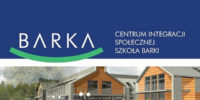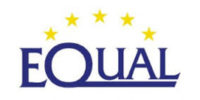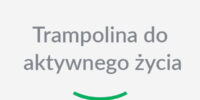Od kwietnia 2022 roku Fundacja Pomocyt Wzajemnej Barka jest parterem w międzynarodowym projekcie SKY (SKills for long term unemploYed)
Celem głównym projektu jest reintegracja i aktywizacja społeczno-zawodowa łącznej grupy 125 osób 25 osób z każdego kraju, od każdego z partnerów) oraz przeprowadzenie 5 szkoleń / warsztaów zawodowych podczas których uczestnicy nabędą nowe umiejętności.
Partnerzy :
CEC (Belgia) http://cecasbl.org/
SCF (Włochy) https://www.scformazione.org/
AGFE (Francja) https://www.agfe95.eu/
MIREC (Belgia) https://www.mirec.net/
TRINIJOVE (Hiszpania) https://trinijove.org/
BARKA (Polska) https://barka.org.pl/
Projekt ralizowany będzie od kwietnia 2022 do kwietnia 2024.
Finansowany jest w ramach programu Erasmus+: Cooperation partnerships in the field of Education and Training
IN ENGLISH :
Summary of the SKills for long term unemploYed – SKY project
The observations are as follows:
- The target group of this project is characterised by the fact that they are people who are very far from employment and very far from the habit of training for various reasons, ranging from school drop out to inactivity for too long not to mention loss of self-esteem and loss of attention/concentration. They should not be put in the position of being taught by a „master”.
- Teaching methods in technical and vocational training are currently focused on the acquisition of skills. However, the word „skills” is used in all sorts of ways and it is easy to mix knowledge with know-how, know-how with practice, behaviour with transversal skills, etc. and the experiences acquired by the Long Term Unemployed (LTU) are often neglected:bhow can these experiences and this „lived experience” be valued and used?
- Two cognitive approaches accompany this profusion of „skills”.
- The deductive approach (the classic one) is the one that the „old-timers” followed during their schooling and in vocational training: it consists of delivering a general course and then checking whether the learner has integrated all or part of the message.
- Alongside this, there is the inductive approach where the learner is accompanied in his or her reflection starting from a situation or a problem to which he or she will find the solution by himself or herself.
Specific objectives of the project:
- Setting up of Territorial Working Groups mobilising to create tools favouring the acquisition of skills through micro-training based on 3 to 4 good practices developed in each partner country of the consortium;
- Bring 125 LTU (25/partner) to “re learn to learn” by valorising the experiences acquired in any situation usable by the LTU
- Based on 3 selected jobs (green jobs, proximity jobs, one choice of the partners with a preference for occupations using digital applications), each partner will set up 5 micro trainings introducing 2 professional abilities.
- Production of 25 videos and/or online trainings (5/partner) presenting micro trainings allowing LTU to acquire professional abilities and postures to execute some tasks of a trade. These micro trainings should be subject to an evaluation for formal certification.
How? By a “small steps” approach:
- An appropriate pedagogical approach of trainings called “micro trainings” which is nonetheless realistic in the face of the demands of the labour market;
- By ensuring that learners are not overwhelmed with too much information at once so that they can focus their attention on the key notions they need to retain and progress in their learning without becoming discouraged;
- By agreeing to use a not too formal approach to value the experience acquired (self-presentation – valorisation of candidates) in the training modules;







